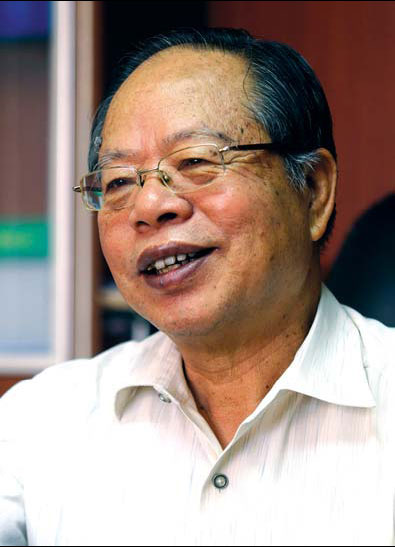Entrepreneur pays homage to adopted city
Updated: 2011-10-03 07:35
By Huang Zhaohua (China Daily)
|
|||||||||||
|
Too Lai Huat, a Chinese Malaysian doing business in Nanning. Provided to China Daily |
"Every year in Nanning, the city is different and it has been changing at an extraordinarily rapid rate year by year," said Too Lai Huat, a Chinese Malaysian who is doing business in Nanning, the capital city of South China's Guangxi Zhuang autonomous region.
Witnessing the fast development of the city, Too, the former president of Nanning Rongbaohua Real Estate Co Ltd, spoke very highly of the changes over recent years.
"When I was a child, I learned from a textbook that there was a beautiful river called Yongjiang crossing Nanning," said Too, recalling his initial impression of the city.
"So I went to the river bridge as soon as I arrived 28 years ago during a trip," he said.
"The city was still undeveloped at that time and there was much countryside. However, the scenery along the riverbanks has been getting more and more attractive. It is different from what I recall. Nanning now is a city with soaring skyscrapers and is similar to overseas developed urban areas."
Speaking of the city's greening, Too believes Nanning could compare favorably with wonderful garden cities such as Singapore and Kuala Lumpur.
With the China-ASEAN Expo setting its permanent site in the city and after the establishment of the China-ASEAN Free Trade Area (CAFTA), Nanning has ranked the best among the western areas of China for investment environments and has attracted plenty of overseas capital inflows.
According to authoritative statistics, during the 11th Five-Year Plan period (2006-2010), Nanning had registered 4,291 projects funded by businesses from outside the city.
To date, businesses from 45 countries and regions have invested in Nanning, including the United States, Germany, France, Japan, South Korea and ASEAN nations.
Referring to the influence of the China-ASEAN Expo on Nanning, Too said it provided the city with "an unparalleled opportunity to develop and set up a platform for enhancing communication between the city and ASEAN nations".
He said: "The news that Nanning was selected as the permanent venue for holding the China-ASEAN Expo also boosted the confidence of Malaysian businesspeople who are interested in investing here."
According to the city's authorities, by the end of June this year, generated investment from the Association of South-East Asian Nations (ASEAN) countries amounted to $490 million, of which some $4.8 million was from Malaysia.
At least 57 ASEAN enterprises have registered in Nanning, of which 11 are from Malaysia.
He said the city is an ideal place for business as its geographical position gives it convenient access to both China's southwestern provinces and the neighboring ASEAN countries.
A hub linking China and ASEAN, the city has seen its government creating a first-class environment for trade and investment.
"Nanning is experiencing rapid growth. It is easy for us to explore the Chinese market with improved transport network here." Too said.
Too also recommended the Chinese city to many of his Malaysian business friends.
"They all think well of the city," he said, adding that "the best time to seize a business opportunity is when a place is in its early stage of development. We came very early. However it is still a good time to invest in Nanning now."
As the host city of the China-ASEAN Expo, more ASEAN companies now see Nanning as a good place for trade, investment and technological cooperation.
Many enterprises, such as the leading Malaysian company Petronas, have expressed interest in establishing regional headquarters in Nanning.
"Every day when I walk along the Yongjiang River, seeing the city's development makes me feel wonderful. If I had the chance to live my life again, I would still settle in Nanning," Too said.
(China Daily 10/03/2011 page7)
